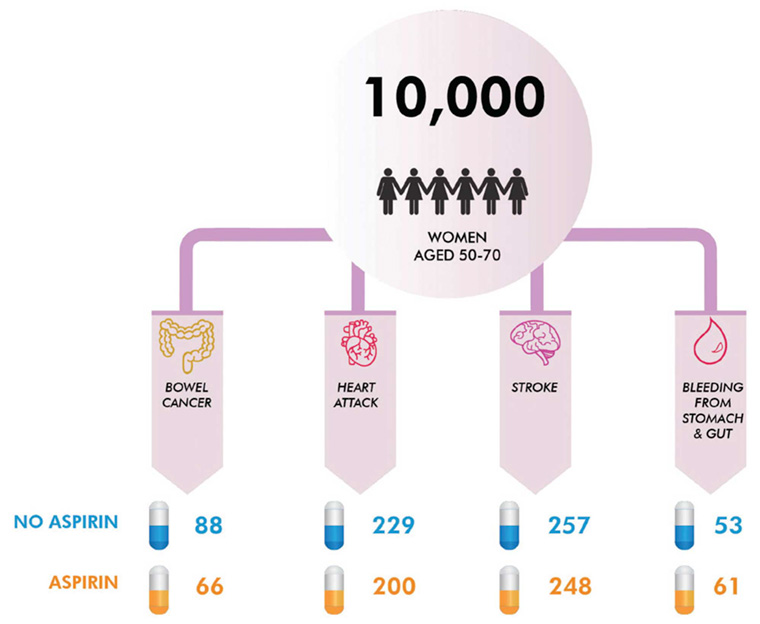News
Chemoprevention better than cure
A primary care-led approach is aiming to help GPs protect at-risk patients against certain types of cancer – in many cases before they develop.
 Prof Jon Emery said inspiration for chemoprevention stemmed from updated Cancer Council guidelines that recommend certain people should consider taking low-dose aspirin to reduce risk of bowel cancer.
Prof Jon Emery said inspiration for chemoprevention stemmed from updated Cancer Council guidelines that recommend certain people should consider taking low-dose aspirin to reduce risk of bowel cancer.
The concept – chemoprevention – stems from meta-analyses of large prevention trials that have pioneered the use of medication as a way of reducing the chances susceptible groups have of developing cancer.
In particular, researchers have focused on two examples relevant to general practice: low-dose aspirin for the prevention of colorectal cancer in people aged 50–70, and selective oestrogen receptor modulators (SERMs) for women at increased risk of breast cancer.
Professor Jon Emery, the lead author of a recently published study exploring chemoprevention, told newsGP the inspiration for the approach stemmed from updated Cancer Council guidelines that recommend certain people should consider taking low-dose aspirin to reduce the risk of bowel cancer.
‘[The guidelines have] probably not reached general practice that well yet, so we’ve been working on developing decision aids that are designed to be used in general practice and be really explicit around the size of the benefits and potential harms around taking aspirin as a chemoprevention strategy,’ he said.
‘It’s a relatively safe, low-cost intervention and the evidence is reasonably strong that it shows both a reduction in instance, but also mortality from bowel cancer.’
Studies have found that taking aspirin for as little as two-and-a-half years can reduce the incidence of bowel cancer, particularly for those patients most at risk of developing the disease.
According to Professor Emery, the benefits of using aspirin, such as reducing the risk of heart attacks and bowel cancer, significantly outweigh potential harms, such as gastrointestinal bleeding.
As such, his team has produced frequency trees for use in general practice, which show the absolute benefits and harms of taking chemoprevention medications in specific populations. It is hoped the visual aids will add to the already well-established primary care cancer prevention tactics of behaviour modification and increased participation in screening programs.
‘We’ve actually done some pilot testing of different ways of presenting this risk information to patients in GP waiting rooms. These expected frequency trees, which is what they’re formally known as, came out quite well from a patient point of view,’ Professor Emery said.
‘It’s a nice, explicit way of allowing both GPs and patients to understand the relative benefits and harms.’

Frequency trees for use in general practice show the absolute benefits and harms of taking chemoprevention medications in specific populations.
University of Melbourne PhD candidate Peter Nguyen conducted research into risk communication methods that included the frequency trees. He said the results showed the importance of involving patients in the treatment choice process.
‘There is a shift towards encouraging shared decision-making, showing patients the benefits and harms to inform whether they want to take medications for cancer prevention,’ he said.
‘This research clearly shows that the benefits of taking aspirin for bowel cancer prevention still outweigh any potential harms in the cohort of 50–70-year-old patients, even over long periods of time.’
Professor Emery said the evidence supporting SERMs as a safeguard against breast cancer is less clear, but the frequency trees are nonetheless an effective way of communicating the potential benefits for women who have a family history of the disease.
‘My personal feeling from a GP’s point of view is that the decision to take drugs likes temoxathine and remoxaline is more complicated than aspirin, because the side-effect profile of these drugs is more significant in terms of thromobembolioc disease and endometrial cancer,’ he said.
‘The evidence is there is relatively low uptake of these selective oestrogen receptor modulator drugs, even in women who are at increased risk of breast cancer … [but] it’s a discussion some GPs may want to have.’
cancer Chemoprevention prevention primary care
newsGP weekly poll
Would it affect your prescribing if proven obesity management medications were added to the PBS?